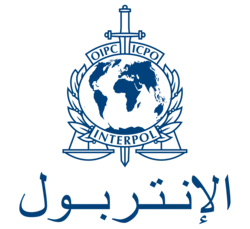INTERPOL's first ever police operation targeting child trafficking in West Africa has resulted in the rescue of more than 50 child workers and the arrest of eight people in connection with the illegal recruitment of children.
Two-pronged operation
Nearly 300 Ivorian law enforcement officers participated in the two-day operation (18-19 June) during which eight teams (six mobile and two fixed) simultaneously targeted a selection of plantations believed to be using illegal child labour. In addition, vehicles travelling on the main roads leading from Ghana were systematically checked for potential child victims.
Codenamed ‘BIA’ after the river which separates Ghana from Côte d’Ivoire, the operation resulted in the rescue of 54 children of seven different nationalities, clearly demonstrating the extent of transnational child trafficking in the region.
Child victims
The children had been bought by plantation owners needing cheap labour to harvest the cocoa and palm plantations. They were discovered working under extreme conditions, forced to carry massive loads seriously jeopardizing their health. Aged between 11 and 16, children told investigators they would regularly work 12 hours a day and receive no salary or education. Girls were usually purchased as house maids and would work a seven-day week all year round, often in addition to their duties in the plantations.
Specially trained investigators in child exploitation and trafficking interviewed the victims with the responses providing investigators with a clearer picture of the extent of child labour in the region and potential regional networks. None of the children were aware that child labour is illegal.
Regional intelligence
Designed to tackle the increasing trend in child trafficking and exploitation in this South Eastern part of Côte d’Ivoire, the operation was planned by INTERPOL's Regional Bureau in Abidjan in conjunction with Ghanaian and Cote d’Ivoire police authorities. Specific plantations were targeted, based on local intelligence gathered in advance of the operation.
Operation BIA was conducted under the banner of INTERPOL’s programme of Operational Assistance, Services and Infrastructure Support (OASIS) to African Police Forces, funded by Germany, which is aimed at developing operational policing capacities in Africa. Support was also provided by the German governmental organization GTZ which provides sustainable solutions for political, economic, ecological and social development in a globalized world.
With Ghana and Côte d'Ivoire producing around three quarters of the world’s cocoa, it is believed that hundreds of thousands of children are working illegally in the plantations across these two countries alone. The trafficking of children is often camouflaged by the cultural practice of placing young children with families of wealthier relatives to receive an education or learn a trade. In reality, they are often sold and their rights to education, health and protection denied. To continue tackling this trend, a second BIA operation is scheduled for later this year in Ghana.



